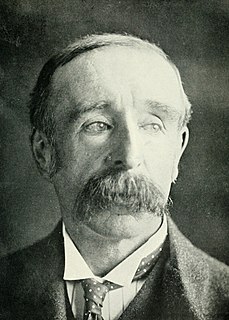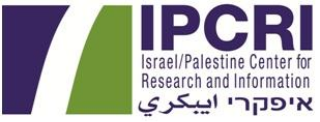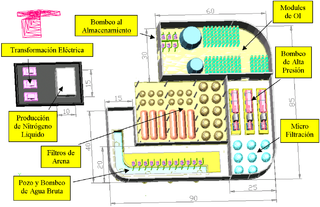
Federalism is the mixed or compound mode of government, combining a general government with regional governments in a single political system. Its distinctive feature, exemplified in the founding example of modern federalism by the United States under the Constitution of 1787, is a relationship of parity between the two levels of government established. Federalism can thus be defined as a form of government in which there is a division of powers between two levels of government of equal status.
The National Security Strategy (NSS) is a document prepared periodically by the executive branch of the government of the United States for Congress. It outlines the major national security concerns of the United States and how the administration plans to deal with them. The legal foundation for the document is spelled out in the Goldwater-Nichols Act. The document is purposely general in content, and its implementation relies on elaborating guidance provided in supporting documents such as the National Military Strategy.
Devolution is the statutory delegation of powers from the central government of a sovereign state to govern at a subnational level, such as a regional or local level. It is a form of administrative decentralization. Devolved territories have the power to make legislation relevant to the area and thus granting them a higher level of autonomy.
Public policy is the principled guide to action taken by the administrative executive branches of the state with regard to a class of issues, in a manner consistent with law and institutional customs. There has recently been a movement for greater use of evidence in guiding policy decisions. Proponents of evidence-based policy argue that high quality scientific evidence, rather than tradition, intuition, or political ideology, should guide policy decisions.
The Atlantic Council is an American Atlanticist think tank in the field of international affairs. Founded in 1961, it provides a forum for international political, business, and intellectual leaders. It manages ten regional centers and functional programs related to international security and global economic prosperity. It is headquartered in Washington, D.C.. It is a member of the Atlantic Treaty Association.

Patrick McMahon Glynn KC was an Australian lawyer and politician. He served in the House of Representatives from 1901 to 1919, and was a government minister under three prime ministers, as Attorney-General (1909–1910), Minister for External Affairs (1913–1914) and Minister for Home and Territories (1917–1920). Prior to entering federal politics, Glynn was involved in the drafting of the Constitution of Australia. Born in Ireland, he arrived in Australia in 1880 and served three terms in the South Australian House of Assembly, as well as a brief stint as Attorney-General of South Australia.
The German Development Institute / Deutsches Institut für Entwicklungspolitik (help·info) (DIE) is one of the leading think tanks for development policy worldwide. This has been attested in January 2013 by the ranking of the Global Go To Think Tanks Report : For the fifth consecutive time, DIE has been selected as one of the Top Ten influential think tanks and research institutions in the field of development policy worldwide. The German Development Institute / Deutsches Institut für Entwicklungspolitik (DIE) is one of only three European research institutes ranked in this Top Ten list. DIE improved its visibility in the international context in the current ranking on a wide scale, such as in the categories Top Think Tanks in Western Europe, Top Think Tanks – Worldwide and Best Government Affiliated Think Tanks. Once again, DIE belongs to the Top 20 institutions among the Think Tanks with the Most Innovative Policy Ideas/Proposals. Furthermore, DIE was evaluated in a number of categories for the first time, e.g., within the category Think Tanks with Outstanding Policy-Oriented Research Programs) or in the field of knowledge marketing. The Institute is based in the UN-City of Bonn. DIE builds bridges between theory and practice and works within international research networks. The key to DIE’s success is its institutional independence, which is guaranteed by the Institute’s founding statute.
The Committee for Economic Development of Australia (CEDA) is a bipartisan, non-profit, national, independent, member-based organisation providing thought leadership and policy perspectives on the economic and social issues affecting Australia.
The Sustainable Development Policy Institute (SDPI) provides the global sustainable development community with representation from Pakistan as well as South Asia as a whole. The Institute's mission is: "To catalyse the transition towards sustainable development, defined as the enhancement of peace, social justice and well-being, within and across generations". The think tank is based in Islamabad, Pakistan. The Lauder Institute thinks it is one of top 15 research institute's in Southeast Asia and the Pacific.
The International Relations and Security Network (ISN) was part of the Center for Security Studies (CSS) at the Swiss Federal Institute of Technology, which is located in Zurich, Switzerland. It was an online information service that provided a range of open access products and resources that concentrated on international relations (IR) and security studies. In 2016, the ISN ceased to be a stand-alone project and was fully integrated into its parent organization as CSS Resources.
The Centre for Policy Dialogue (CPD), established in 1993 by Rehman Sobhan, its Founder chairman, with support from leading civil society institutions in Bangladesh, is mandated by its Deed of Trust to service the growing demand originating from the emerging civil society of Bangladesh for a more participatory and accountable development process. CPD seeks to address this felt-need from the perspectives of marginalised stakeholders, by way of organising multistakeholder consultations, by conducting research on issues of critical national, regional and global interests, through dissemination of knowledge and information on key developmental issues, and by influencing the concerned policy making processes.

The European Council on Foreign Relations (ECFR) is a pan-European think tank with offices in seven European capitals. Launched in October 2007, it conducts research on European foreign and security policy and provides a meeting space for decision-makers, activists and influencers to share ideas. ECFR builds coalitions for change at the European level and promotes informed debate about Europe's role in the world. ECFR has offices in Berlin, London, Madrid, Paris, Rome, Warsaw and Sofia.
Tom Burke is Chairman and Founding Director of E3G, Third Generation Environmentalism, an Environmental Policy Adviser to Rio Tinto, and a university Visiting Professor. He played a leading part in establishing the European Environment Bureau for nearly two decades and was the Secretary-General of the European and North American NGO preparations for the Rio Earth Summit.
Western Sydney Regional Organisation of Councils (WSROC) is one of the oldest Regional Organisations of Councils or ROCs in NSW, Australia. It was formed in November 1973 to represent the councils of Western Sydney and to advocate for the people of the region. Its current membership includes 8 of the 13 Greater Western Sydney councils, making it one of the largest NSW Regional Organisations of Councils
Grattan Institute is an Australian public policy think tank, established in 2008. The Melbourne-based institute is non-aligned, however it defines itself as contributing "to public policy in Australia as a liberal democracy in a globalised economy." It is partly funded by a $34 million endowment, with major contributions from the Australian Federal Government, the State Government of Victoria, the University of Melbourne and BHP Billiton.

IPCRI - Israel/Palestine Center for Research and Information is a joint Israeli/Palestinian NGO and public policy think tank based in Jerusalem working towards building partnerships in Israel/Palestine. Under shared Israeli-Palestinian leadership, IPCRI carries out research and projects in various fields from economic development to environmental sustainability. IPCRI also facilitates public outreach and track two negotiations between Israelis and Palestinians.
The Partnership for Peace Consortium is a network of over 800 defense academies and security studies institutes across 60 countries. Founded in 1998 during the NATO Summit, the PfPC was chartered to promote defense institution building and foster regional stability through multinational education and research, which the PfPC accomplishes via a network of educators and researchers. It is based at the George C. Marshall European Center for Security Studies in Garmisch, Germany. According to the PfPC Annual Report of 2012, in 2012 eight hundred defense academies and security studies institutes in 59 countries worked with the PfPC in 69 defense education/defense institution building and policy-relevant events. The Consortium publishes an academic quarterly journal CONNECTIONS in English and Russian. The journal is run by an international Editorial Board of experts and is distributed to over 1,000 institutions in 54 countries.

Analytical Center for the Government of the Russian Federation is the source of prompt expert views on a wide range of socio-economic development issues of the country.
GCTools is a suite of enterprise digital collaboration applications maintained by the Canadian Government. It consists of:







